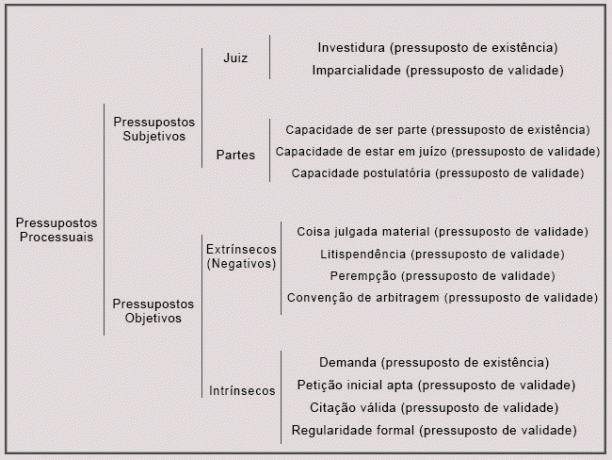Subjective right refers to the rights that are effectively guaranteed to the individual by law. And the concrete form of a right that has been determined by law and can be enjoyed by a person.
Thus, the subjective law or you can schedule can be defined as the right to demand, is the power a person has to enforce an individual right that was previously guaranteed by law.
Therefore, it is the subjective right that allows a person to invoke the provision of the law to guarantee the fulfillment of a right.
Subjective law receives this name because it is a reference to the subject of law, that is, who has the right.
Subjective public and private law
Subjective law can be subdivided into public subjective law and private subjective law.
O subjective public law it is the right of action, of petition, the right of liberty and political rights. It refers to the State, thus, it is related to rights that must be provided (guaranteed) to citizens by the State, through governments.
Some examples are: right to health, education, public transport, among others.
already the private subjective right refers to patrimonial and non-patrimonial rights. It is related to people under private law.
Examples are: property rights, inheritance rights, intellectual property, child support payments, among others.
Other Classifications of Subjective Law
In addition to the subjective right being divided into public and private, it also has other classifications. See what they are:
- Available: these are rights that the holder can give up, if he so wishes.
- Unavailable: these are rights that the individual cannot give up, even if he wants to.
- Real: rights that are related to a thing or good.
- Personal: rights related to a charge or a performance.
- Accessories: are the rights that depend on another right, called the main one.
Read more about Right, Public right and Private right.
Subjective Law Elements
A subjective right is formed by three elements: subject, object and legal bond.
O subject of subjective law can be active or passive. The active subject is the one who wants the fulfillment or guarantee of a right, while the taxable person is the one who must fulfill the right due.
O object of subjective law can be mediated or immediate. The mediate object exists when the right refers to a good. The immediate object refers to an action, for example: to do or not to do a certain action.
O legal bond it represents the relationship between the subject and the object of the right, that is, the link that exists between the right that must be guaranteed and the individual that requires the guarantee of that right.
Subjective Law Theories
There are three theories that explain the origin of subjective law. Find out what they are:
- will theory: according to this theory, the subjective right is the recognition of the will by the legal order, that is, when, through a law, the existence of a certain right is recognized. This theory was elaborated by Friedrich Carl von Savigny and Bernhard Windscheid.
- interest theory: according to this theory, the subjective right is the protection of the right through a lawsuit. This theory is created by Rudolf von Ihering.
- mixed or eclectic theory: this theory explains that the subjective right is the will recognized by the legal order, being this will corresponding to an interest or a good. The mixed theory was developed by Georg Jellinek.
Difference between subjective law and objective law
Subjective law and objective law are related because the existence of one depends on the previous existence of the other.
This is because the objective law is the legal system (law) that guarantees the existence of the subjective right, that is, the guarantee of the collection of a right that was previously provided for in the legislation.
Also read the meaning of objective and subjective law and Right.

